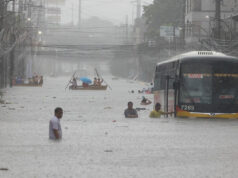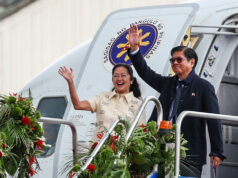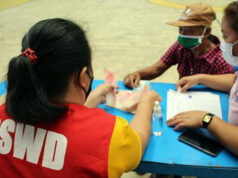Immigration training, not stricter travel guidelines, to stop trafficking — analyst

By Beatriz Marie D. Cruz, Reporter
ARRESTING incidents of human trafficking in the country requires capacitating Bureau of Immigration (BI) officers to detect fraud more than imposing stricter regulations on travelers, a congressman-turned-convenor of a think tank said on Monday.
“If government is concerned in the rise in human trafficking cases through international borders, the remedy is not to impose more regulations to entire classes of Filipino travelers,” Infrawatch convenor Terry L. Ridon said in a Viber chat with reporters.
Mr. Ridon’s comments come on the heels of the Inter-Agency Council Against Trafficking’s (IACAT) updated guidelines for Filipinos traveling abroad, which were released last week.
Basic travel documents now include a passport that is valid for at least six months from the date of departure, a valid visa, a boarding pass, and a confirmed return or roundtrip ticket.
Self-funded tourists are required to show proof of employment and financial capacity, while travels sponsored by entities abroad should include affidavits of support.
Overseas Filipino Workers (OFWs) should also present their overseas employment certificate (OEC) or any other equivalent documents of the sponsor. Minors will also need travel clearance from the Department of Social Welfare and Development.
Mr. Ridon said the additional documents increase the burden on peoples’ right to travel. “Issued visas [which have already shown to their embassies and consulates,] should constitute presumptive proof of a traveler’s financial capacity to travel and willingness to return to the country,” Mr. Ridon noted.
Instead of making regulations tougher for Filipinos to travel out of the country, he said the government must focus on training immigration officers on how to detect new forms of trafficking, expand their experience through their day-to-day work, and increase the number of personnel assigned at the country’s borders.
Senator Ana Theresia “Risa” N. Hontiveros-Baraquel called to further study whether the additional travel documents are necessary and practical.
“We shouldn’t turn a blind eye to warnings that some of the requirements would only promote delays and are prone to exploitation by corrupt immigration officers,” Ms. Hontiveros-Baraquel said in a statement.
Justice spokesman Jose Dominic F. Clavano IV last week said the guidelines are part of the government’s efforts to “streamline and organize existing [travel] requirements.”



